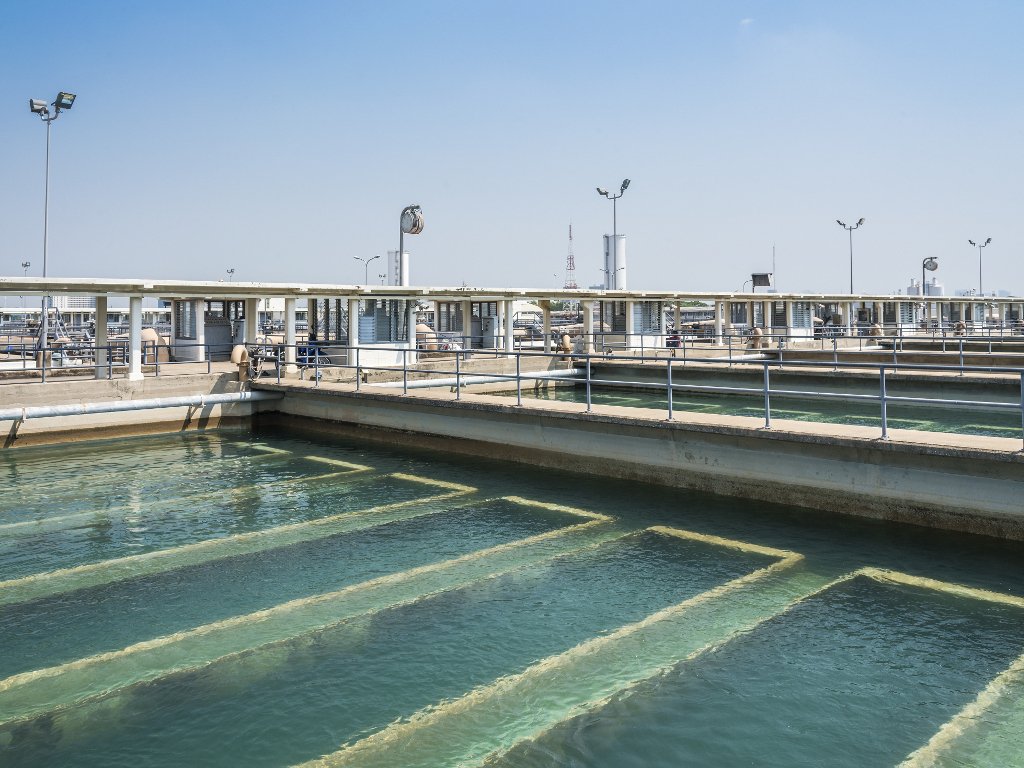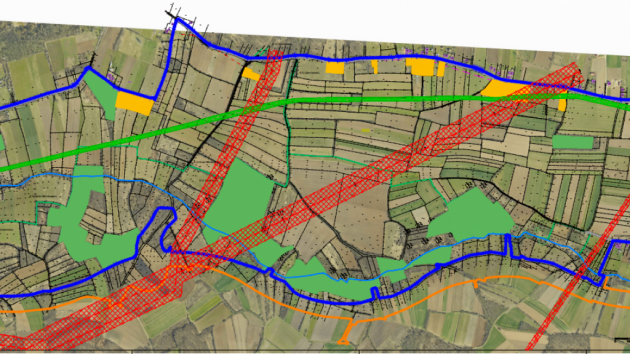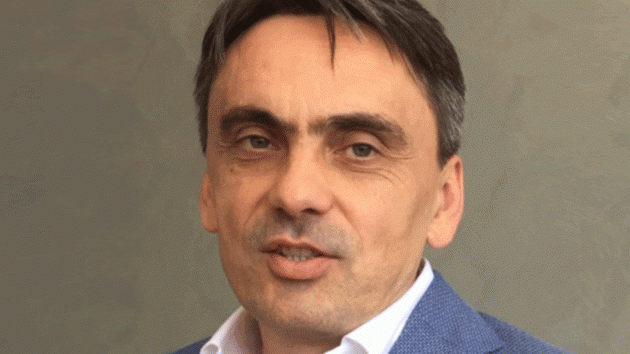Why should investors implement waste water treatment solutions in projects?
 Wednesday, 09.06.2021.
Wednesday, 09.06.2021.
 10:57
10:57

– In developed countries, waste water treatment is already mandatory in all activities and in all homes, whether they are within the system of sewer networks or not. Here, this area is not known well enough, because our country has not dedicated enough attention to environmental problems. Since problems are piling up, the legislation has now recognized them and made business users treat waste waters in their fields – says Stankovic.
The need for waste water treatment comes from the need for clean water, of which there is little. When the conditions are such that the water used to supply clean-water factories is very polluted with municipal and industrial waste, they experience difficulties in processing the water so that it is fit for human consumption.
The food industry also gets clean water from ground flows. It invests in the means and the chemical reagents which bring water to the level where it’s good enough for industrial use.
Furthermore, a special part consists of the water used for fishing and recreation. Stankovic notes the lack of Serbian rivers which meet the standards that a modern tourist requires.
– There’s fishing activity here, but most fish caught in our rivers are not fit for human consumption. Swimming, beaches and tourist attractions are rare on rivers, and the quality of the water is not even talked about. Due to the urban pollution and municipal waters, large cities which have swimming areas such as Novi Sad and Belgrade should not be free for swimming, if our legislation and water classification are taken as the criteria – Stankovic claims.
When it comes to future investment projects, Stankovic points out that, if waste water solutions are implemented in projects, there are great benefits for the community.
– Today, there are devices which solve a certain environmental problem in the location it occurs in and such solutions are affordable and quickly implemented. As the supplier of the equipment of the European producer in the field of waste waters Starplast, Eco Nova constantly educates the market and clarifies the advantages of the use of waste water treatment devices. The range of products consists of biological devices, grease and oil separators and pumping stations, which back up those solutions.
On the other hand, Stankovic is optimistic when it comes to people’s self-awareness, since they often seek solutions to environmental problems themselves, without being forced by the law.
– The technologies we provide are designed so as to solve the problem of waste waters at the spot where the problem occurs. The devices are set inside polyethylene tanks and are produced using the rotomoloding technology, where the human factor is reduced to a minimum, which ensures that they are water-proof. They are easy to install and they filter up to 85%. The polyethylene tanks have a long shelf life, so they are a long-lasting solution. Thanks to these qualities and the fact that system maintenance is rarely required, investors in Serbia choose these solutions – Stankovic says and cites the construction of water-proof concrete septic tanks as an example.
– The law says that a septic tank must be a receptacle that allows inflow, but not outflow, the kind which needs to be emptied when full. The costs of building septic tanks and emptying them are frequent and big. When someone chooses a biological device instead of this solution, the initial investment is slightly bigger, but the advantage is that biological devices filter the water which constantly outpours into the environment, the absorption pit or the canal. Emptying the excess sludge which is a byproduct of the biological process of filtering is done once every six months, or even once a year, depending on how well-proportioned the device is. The use is simple and nothing needs to be added to the natural process which takes place inside the device and there are no hidden costs.
Stankovic also mentioned the potential problems when it comes to waste water treatment. The problems occur as soon as the first phase, when a solution is being chosen. Devices that are too small or too large do not perform as they are supposed to and are a problem for investors. In that sense, Eco Nova offers six different models for around ten combinations, according to the type and the purpose of the facility and the number of users. Technical solutions entail blueprints and technical documentation which is an integral part of a project. Stankovic suggests that documentation is often missing and that it is a requirement for the determining of the type and the model of installation. Furthermore, technical documentation is also a basis for predicting the potential challenges in the device’s further operations.
As for industrial waste waters, Stankovic points out that, although their quantity in Serbia is small, they contribute substantially to the pollution. As an example, he highlights the food industry and livestock breeding, where waste waters are a hundred times more polluted than recommended in the Republic of Serbia’s regulation of the emission of harmful matters. On the other hand, as the biggest polluter, municipal waters, when it comes to the obligation of filtering, are in the phase of being considered. For the time being, business entities are obliged by local demands to install waste water treatment systems.
– Since septic tanks, which are obsolete, are mostly built here, with users letting the water from the tanks into the local environment or land, Eco Nova recommends technologies which work in line with the principle of biological treatment. Within the devices, the processes of accumulation of large particles and materials, the homogenization of waste water and biological treatment through microorganisms in aerobic or anaerobic conditions are carried out. When aerobic conditions are needed, the devices feature additional electrical equipment such as a compressor for pumping in air, diffusers or a pump. The water from the device is let into the absorption pit or the gutter.
When it comes to filtering rainwater or oily waste waters from car washes and workshops, oil separators are required. These are devices which contain special coalescent filters for separating oil from water and which retain matters that mustn’t end up in the environment. These devices are applicable in parking facilities, road infrastructure, gas stations and so on.
Finally, Stankovic highlights the industries which need filtering systems the most.
– They can be all producers of waste waters which are not within the sewer system and which require the filtering of industrial and sanitary water. In Serbia, the biggest polluters are mines, thermal power plants, plastic and steel factories. In addition to that, the most numerous are food producers, such as food and milk processing factories. Sanitary polluters are private, residential facilities, hotels and resorts, which are often located in protection zones. The most numerous one, of course, are those in suburban areas around the bigger cities in Serbia.
Milica Banovic
 Eco Nova doo Beograd
Eco Nova doo Beograd
Naš izbor
Most Important News
06.04.2024. | Agriculture
Preconditions for Placement of Fresh Blueberries and Dried Plums in Chinese Market Secured

16.04.2024. | News
Jovan Ciric, Leasing Director Retail MPC Properties – MPC Echo symbolizes our desire for good ideas and innovative endeavors to spread freely and bring about positive changes

16.04.2024. | News
10.04.2024. | Finance, IT, Telecommunications, Tourism, Sports, Culture
Creative Industry – What This Serbian Economy Sector Worth EUR 2 Billion Encompasses

10.04.2024. | Finance, IT, Telecommunications, Tourism, Sports, Culture
18.04.2024. | Industry, Finance
Here come the new hunters for Serbian gold – Australian Strickland Metals buys mining project on mountain Rogozna

18.04.2024. | Industry, Finance
16.04.2024. | News
Economy Fair in Mostar opens – 26 companies from Serbia exhibiting

16.04.2024. | News
18.04.2024. | Transport
Jovanovic: Purchase of Siemens trams produced in Kragujevac for GSP Beograd should be considered

18.04.2024. | Transport


 Izdanje Srbija
Izdanje Srbija Serbische Ausgabe
Serbische Ausgabe Izdanje BiH
Izdanje BiH Izdanje Crna Gora
Izdanje Crna Gora


 News
News








